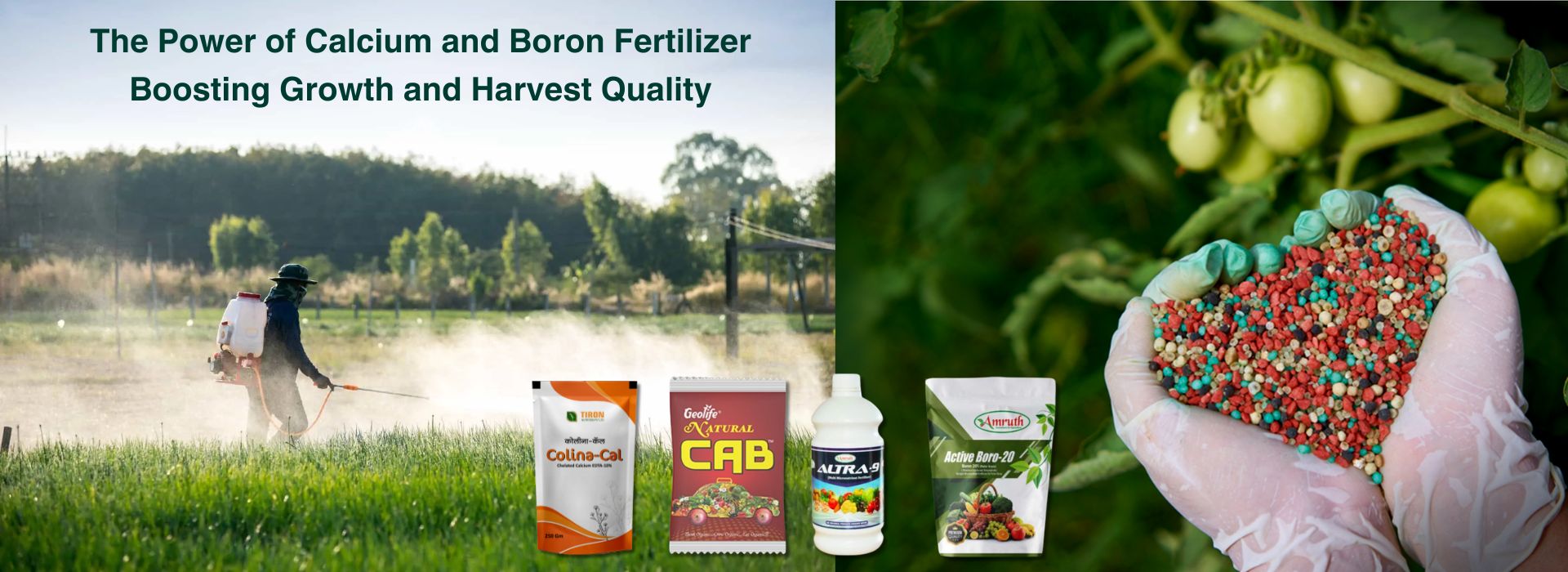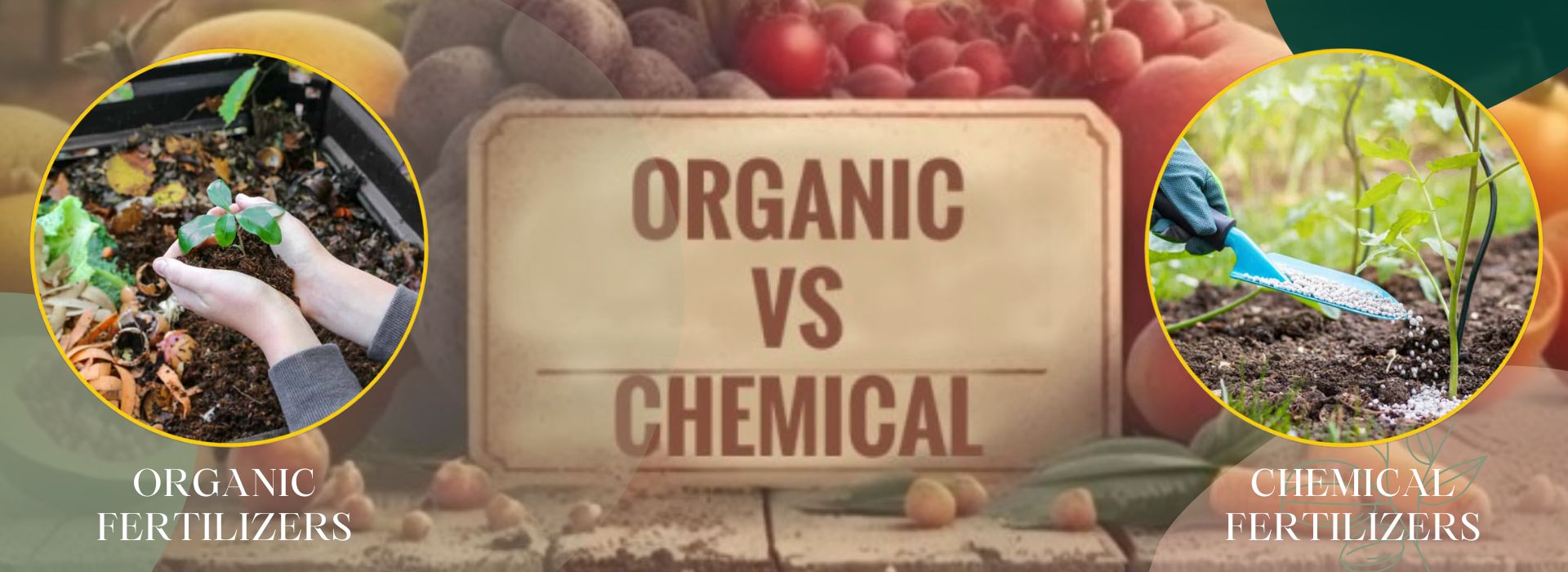The Power of Calcium Boron Fertilizer : Boosting Growth and Harvest Quality
June 24, 2024Are you looking to maximize the
growth and harvest quality of your plants? Look no further than calcium boron fertilizer. This powerful fertilizer combination has the potential to
revolutionize your gardening or farming practices. With its unique blend of
calcium and boron, this fertilizer provides essential nutrients that support
plant development, flowering, and fruiting.
Calcium is a vital nutrient for
plants, playing a crucial role in cell wall development, enzyme function, and
overall plant structure. Boron, on the other hand, is involved in the transport
of sugars, the production of plant hormones, and the development and maturation
of seeds and fruits. When these two elements are combined in a fertilizer, they
create a potent formula that can enhance plant health and yield.
By using calcium boron fertilizer, you can expect to see improved growth rates, stronger stems, and
increased disease resistance. Additionally, this powerful fertilizer can boost
the quality and shelf life of your harvested crops, ensuring you get the best
possible results from your hard work.
Don't miss out on the chance to unlock the true potential of your plants with calcium boron fertilizer – a game-changer in the world of agriculture. Experience the power of this nutrient-rich blend and take your gardening or farming to new heights.
The
Importance of Calcium and Boron in Plant Growth
Calcium is a crucial element for
plant growth and development. It plays a vital role in cell wall structure,
helping to maintain the integrity and strength of plant cells. Additionally,
calcium is involved in various enzymatic reactions within the plant, supporting
processes such as nutrient uptake and photosynthesis. Without an adequate
supply of calcium, plants may experience issues like poor root development,
stunted growth, and increased susceptibility to diseases.
Boron, although required in much
smaller quantities compared to calcium, is equally essential for plant health.
This micronutrient is involved in the movement of sugars within the plant,
aiding in the production of plant hormones that regulate growth and
development. Boron also plays a key role in the formation and maturation of
seeds and fruits, influencing their quality and yield. A deficiency in boron
can lead to issues such as poor flowering, abnormal fruit development, and
reduced crop quality.
The combination of calcium and
boron in a fertilizer provides plants with a balanced supply of these essential
nutrients, promoting healthy growth, improved flowering, and enhanced fruiting.
By ensuring that your plants receive an adequate amount of both calcium and
boron, you can support their overall development and maximize their
productivity.
Benefits of
Using Calcium Boron Fertilizer
Using calcium boron fertilizer
offers a range of benefits for plants, ultimately leading to improved growth
and harvest quality. One of the primary advantages of this fertilizer is its
ability to enhance plant structure and strength. Calcium contributes to the
formation of sturdy cell walls, ensuring that plants have the structural
support needed to grow tall and strong. Boron, on the other hand, helps in the
efficient transport of sugars and the development of healthy fruits, leading to
better overall plant health.
Another key benefit of calcium
boron fertilizer is its role in improving flowering and fruiting in plants.
Boron plays a crucial role in flower and fruit development, helping to ensure
that plants produce high-quality, well-formed fruits. By providing plants with
an adequate supply of boron through the use of this fertilizer, you can promote
more abundant flowering, leading to increased fruit set and yield.
In addition to enhancing growth
and fruit quality, calcium boron fertilizer also helps plants build resistance
to various stresses and diseases. Calcium strengthens plant cell walls, making
them more resilient to environmental factors such as drought, heat, and pests.
Boron, on the other hand, supports the production of defensive compounds in
plants, boosting their ability to ward off pathogens and diseases. By
incorporating calcium boron fertilizer into your gardening or farming
practices, you can help plants better cope with stressors and maintain their
health and productivity.
How Calcium
Boron Fertilizer Improves Growth and Yield Quality
The unique combination of calcium
and boron in a fertilizer can have a significant impact on plant growth and
yield quality. By providing plants with these essential nutrients in balanced
proportions, calcium boron fertilizer supports various physiological processes
that are crucial for plant development. Calcium, with its role in cell wall
formation and enzymatic functions, helps plants build strong structures and
carry out essential metabolic reactions.
Boron, on the other hand, aids in
the movement of sugars, the regulation of plant hormones, and the development
of reproductive structures like flowers and fruits. Together, calcium and boron
work synergistically to promote healthy growth, improve flowering, and enhance
fruit quality. This results in plants that are better equipped to take up
nutrients, photosynthesize efficiently, and produce high-quality fruits with
improved taste, color, and shelf life.
The use of calcium boron
fertilizer can also lead to increased crop yields due to its positive effects
on plant growth and development. By ensuring that plants have an adequate
supply of calcium and boron throughout their growth stages, you can help them
reach their full potential in terms of size, vigor, and productivity. This can
translate into higher yields of fruits, vegetables, or grains, ultimately
increasing the overall success and profitability of your gardening or farming
operation.
In summary, the power of calcium
boron fertilizer lies in its ability to promote robust plant growth, enhance
fruit quality, and increase crop yields. By providing plants with the essential
nutrients they need in the form of a balanced fertilizer, you can unlock their
full potential and achieve outstanding results in your gardening or farming
endeavors.
The Role of
Calcium in Plant Health and Development
Calcium plays a crucial role in
maintaining plant health and supporting various physiological processes
essential for growth and development. One of the primary functions of calcium
in plants is its involvement in cell wall structure. Calcium strengthens cell
walls, providing structural support and protection for plant cells. This is
particularly important for plants growing in challenging environments or facing
stressors that can weaken their cell walls.
In addition to its role in cell
wall formation, calcium is also essential for enzymatic activities within the
plant. Many enzymes require calcium as a cofactor to function properly,
regulating metabolic processes such as nutrient uptake, photosynthesis, and
hormone signaling. Without an adequate supply of calcium, plants may experience
disruptions in these essential processes, leading to issues like nutrient
deficiencies, poor growth, and increased susceptibility to diseases.
Furthermore, calcium is crucial
for maintaining overall plant structure and integrity. It helps plants develop
strong stems and branches, supporting their ability to grow upright and
withstand environmental stresses like wind or heavy rain. Calcium also plays a
role in the movement of other nutrients within the plant, ensuring that
essential elements are transported to where they are needed for proper growth
and function.
The Role of
Boron in Plant Nutrition and Yield
Boron is a micronutrient that
plays a vital role in plant nutrition and has significant impacts on yield and
crop quality. Despite being required in much smaller quantities compared to
macronutrients like nitrogen, phosphorus, and potassium, boron is essential for
various physiological processes in plants. One of the key functions of boron is
its involvement in the movement of sugars throughout the plant.
Boron helps regulate the
transport of sugars from leaves to developing tissues, ensuring that plants
have the energy needed for growth and development. This is particularly
important during flowering and fruiting stages when plants require a constant
supply of sugars to support the formation of flowers, fruits, and seeds. A
deficiency in boron can lead to issues like poor fruit set, abnormal fruit
development, and reduced crop yields.
In addition to its role in sugar
transport, boron also influences the production of plant hormones that regulate
growth and development. Boron helps plants synthesize and respond to hormones
that control processes such as cell elongation, flowering, and fruit ripening.
By ensuring that plants have an adequate supply of boron, you can promote
healthy growth, improve flowering, and enhance the quality of fruits and seeds.
Overall, boron plays a crucial
role in plant nutrition and yield by supporting essential processes such as
sugar transport, hormone regulation, and reproductive development. By
incorporating boron into your fertilizer regimen, you can help plants reach their
full potential in terms of growth, yield, and quality.
Application
Methods and Dosage Recommendations for Calcium Boron Fertilizer
When using calcium boron
fertilizer, it is essential to apply the product correctly to ensure optimal
results and prevent any potential issues. There are several methods for
applying calcium boron fertilizer, depending on the type of crop, soil
conditions, and growth stage of the plants. Some common application methods
include foliar spraying, soil drenching, and fertigation, each offering unique
benefits and considerations.
Foliar spraying is a popular
method for applying calcium boron fertilizer, as it allows for efficient
nutrient uptake through the leaves. This method is especially useful for
providing a quick boost of calcium and boron to plants during critical growth stages,
such as flowering or fruiting. When foliar spraying, it is essential to cover
the entire leaf surface evenly to ensure that plants can absorb the nutrients
effectively.
Soil drenching involves applying
calcium boron fertilizer directly to the soil around the plant's root zone.
This method is effective for providing a sustained supply of nutrients to
plants over an extended period. Soil drenching is particularly useful for crops
with deep root systems that can access nutrients from the soil efficiently.
When soil drenching, it is essential to follow dosage recommendations carefully
to avoid overapplication and potential nutrient imbalances.
Fertigation is another method
commonly used for applying calcium boron fertilizer, especially in large-scale
farming operations. Fertigation involves mixing the fertilizer with irrigation
water and delivering it directly to plants through the irrigation system. This
method allows for precise control of nutrient application and can be tailored
to meet the specific needs of different crops and growth stages. When
fertigating, it is crucial to monitor nutrient levels regularly and adjust the
fertilizer dosage as needed to ensure plants receive an adequate supply of
calcium and boron.
In terms of dosage
recommendations, it is essential to follow the guidelines provided by the
fertilizer manufacturer and consider factors such as plant species, growth
stage, soil conditions, and environmental factors. Overapplication of calcium
boron fertilizer can lead to nutrient imbalances, toxicity issues, or
environmental contamination, while underapplication may result in nutrient
deficiencies and reduced plant growth and yield. By carefully following dosage
recommendations and application methods, you can effectively utilize calcium
boron fertilizer to maximize plant growth and harvest quality.
Best
Practices for Using Calcium Boron Fertilizer in Different Crops
When using calcium boron
fertilizer in different crops, it is essential to consider the specific
nutrient requirements, growth habits, and environmental conditions of each
plant species. By following best practices for applying calcium boron
fertilizer, you can ensure that plants receive the nutrients they need to
thrive and produce high-quality yields. Some key best practices for using
calcium boron fertilizer in different crops include selecting the right
product, timing applications correctly, and monitoring plant responses.
Selecting the right calcium boron
fertilizer product is crucial for achieving optimal results in different crops.
It is essential to choose a fertilizer that provides a balanced supply of
calcium and boron in a form that is readily available to plants. Consider
factors such as nutrient concentration, formulation, and purity when selecting
a fertilizer product to ensure that it meets the specific needs of your crops.
Timing applications of calcium
boron fertilizer correctly is also essential for maximizing plant growth and
yield quality. Different crops have varying nutrient requirements at different
growth stages, so it is crucial to apply the fertilizer when plants can benefit
most from the nutrients. For example, applying calcium boron fertilizer during
critical growth stages like flowering or fruiting can help promote healthy
development and improve crop quality.
Monitoring plant responses to
calcium boron fertilizer applications is key to evaluating the effectiveness of
the fertilizer and making any necessary adjustments. Keep an eye on plant
growth, flowering patterns, fruit development, and overall plant health to
assess how well plants are responding to the nutrients. If you notice any signs
of nutrient deficiencies or toxicity, consider modifying the fertilizer dosage
or application method to better meet the needs of your crops.
By following these best practices
for using calcium boron fertilizer in different crops, you can optimize plant
growth, enhance fruit quality, and increase overall yield potential. With
careful selection, timely applications, and regular monitoring, you can harness
the power of calcium boron fertilizer to achieve outstanding results in your
gardening or farming endeavors.
Potential
Challenges and Considerations When Using Calcium Boron Fertilizer
While calcium boron fertilizer
offers numerous benefits for plant growth and yield quality, there are also
some potential challenges and considerations to keep in mind when using this
product. Understanding these challenges can help you overcome obstacles and
maximize the effectiveness of calcium boron fertilizer in your gardening or
farming practices. Some common challenges and considerations include nutrient
interactions, soil pH effects, and environmental impacts.
One potential challenge when
using calcium boron fertilizer is nutrient interactions that can affect the
availability and uptake of other essential nutrients by plants. Calcium and
boron can interact with other nutrients in the soil, leading to nutrient imbalances
or deficiencies. It is essential to consider nutrient interactions and ensure
that plants receive a balanced supply of all necessary nutrients to support
healthy growth and development.
Another consideration when using
calcium boron fertilizer is its potential impact on soil pH levels. Calcium is
a liming agent that can raise soil pH, while boron is more effective at lower
pH levels. It is crucial to monitor soil pH regularly and adjust fertilizer
applications to maintain optimal pH levels for plant growth. By addressing soil
pH effects, you can ensure that plants can efficiently take up calcium and
boron and maximize their growth potential.
Environmental impacts are also an
important consideration when using calcium boron fertilizer in gardening or
farming practices. Excessive use of fertilizers can lead to nutrient runoff,
soil contamination, and water pollution, posing risks to environmental health.
It is essential to follow recommended dosage rates, application methods, and
environmental guidelines when using calcium boron fertilizer to minimize
negative impacts on the environment and surrounding ecosystems.
By addressing potential
challenges and considering key factors such as nutrient interactions, soil pH
effects, and environmental impacts, you can effectively use calcium boron
fertilizer to promote plant growth and enhance harvest quality while minimizing
negative effects on the environment.
Conclusion:
Maximizing Growth and Harvest Quality with Calcium Boron Fertilizer
In conclusion, calcium boron
fertilizer is a powerful tool for boosting plant growth and harvest quality in
gardening and farming operations. By providing plants with a balanced supply of
calcium and boron, this fertilizer can enhance plant structure, improve
flowering and fruiting, and increase crop yields. Calcium supports essential
processes like cell wall formation and enzymatic functions, while boron aids in
sugar transport, hormone regulation, and reproductive development.
The use of calcium boron
fertilizer offers numerous benefits, including improved growth rates, stronger
stems, increased disease resistance, and enhanced fruit quality. By following
best practices for application and considering potential challenges, you can
harness the power of this nutrient-rich blend to maximize the potential of your
plants and achieve outstanding results in your gardening or farming endeavors.
Don't miss out on the opportunity
to unlock the true potential of your plants with calcium boron fertilizer.
Experience the transformative effects of this powerful fertilizer blend and
take your gardening or farming to new heights. With the right knowledge,
application techniques, and considerations in mind, you can leverage the power
of calcium boron fertilizer to optimize plant growth, enhance harvest quality,
and achieve success in your agricultural pursuits.
At krishibazaar.in, you can find and buy various
agricultural products. For agricultural guidance on selecting the most suitable
products for your crops, please contact or WhatsApp at +917887880887






Guest reviews
No reviews found for this Blog